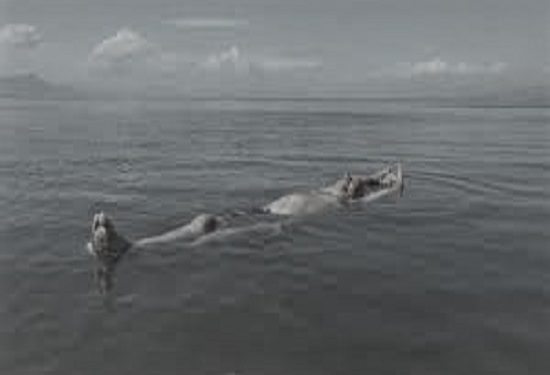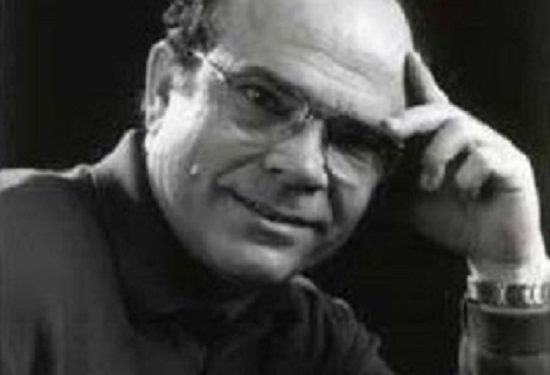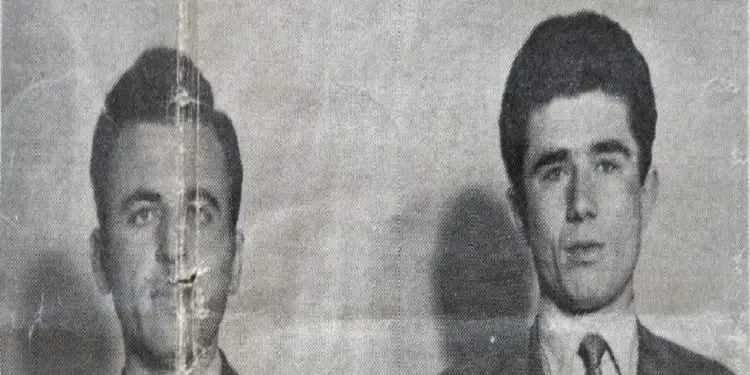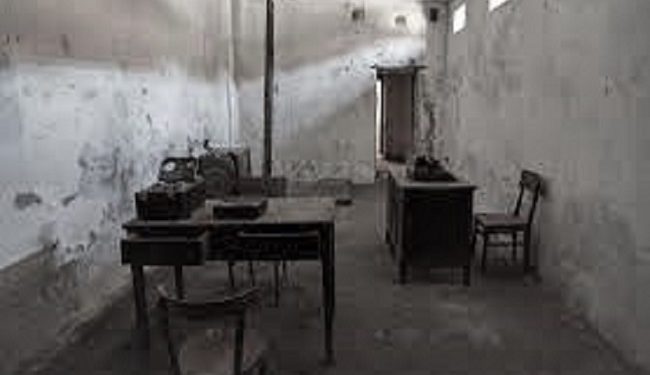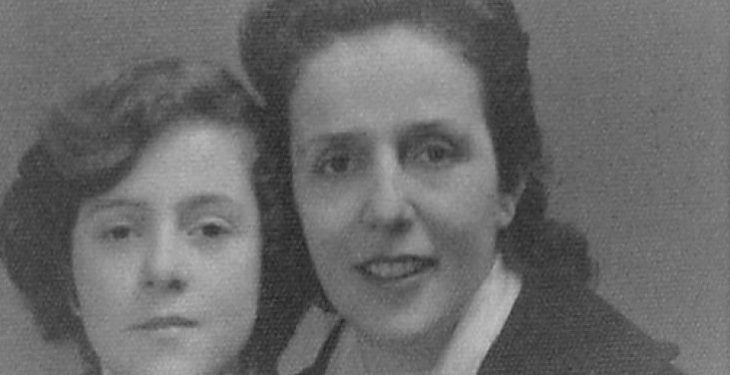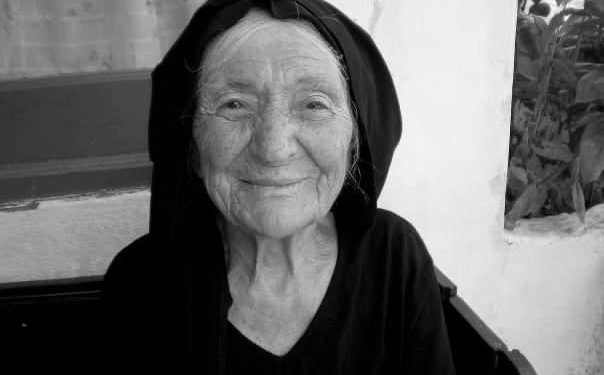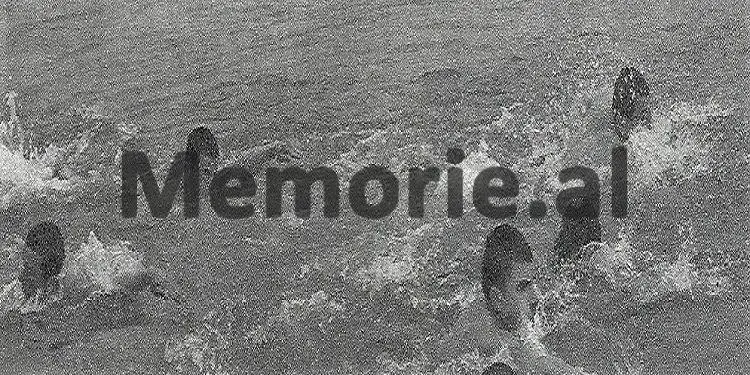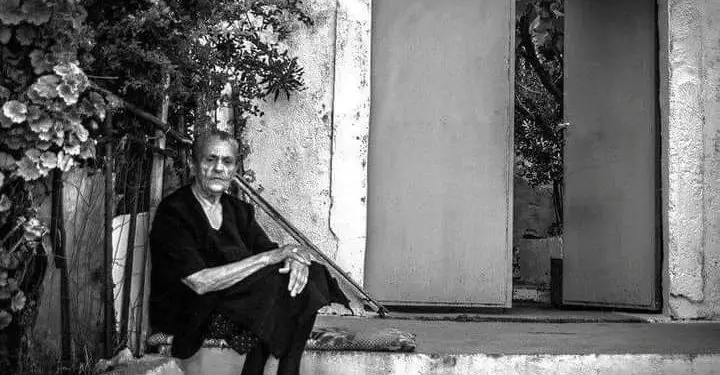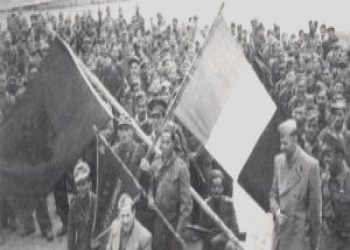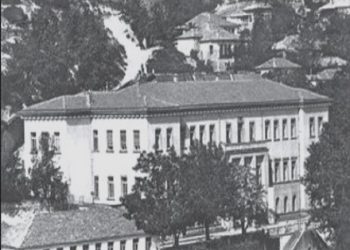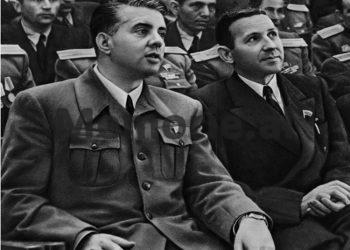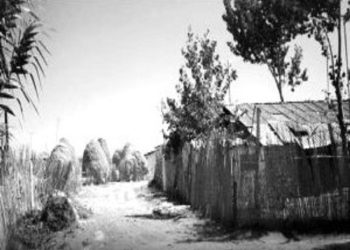By Vasil Qesari
Memorie.al/ The overthrow of the great totalitarian edifice in Albania would leave behind, not only the change of the system, accompanied by lots of hopes, mirages and cries of happiness but, unfortunately, also many wounds, dramas, victims, dust, milk and disappointments from the most different. Ten years and more after that event, which deeply shook society, completely overturning many previous codes, rules and concepts, people still continue to ask themselves such questions as: What really happened in society Albanian, during the last 50 years of the dictatorship? How was it possible that the system managed to warp everything? Why did people accept it? What was the totalitarian logic of the transformation of society and the individual? How were the structures of totalitarian mechanisms conceived and functioning: propaganda, secret police and the exercise of the ideology of terror? How did it happen that among all the communist countries of Eastern Europe, Albania was considered an exception or a special case? Why did Enver Hoxha remain blindly, fanatically loyal to Stalin until the end, turning the country into a prison where violence, fear and purges continued until the end of the 80s? Why was the country so insanely isolated, locking people up between bunkers and barbed wire? Why, then, did all the above phenomena happen…?! The book “Post-scriptum for Dictatorship” does not claim to provide definitive answers to the above questions, or the complexity of the reasons that brought and maintained the totalitarian power in Albania. Nor is it a complete, deep and comprehensive fresco of the life and suffering that people experienced during that system. Its author, perhaps, has the merit that together with the retrospective view of the totalitarian period as well as the zeal of a passionate analyst, he has tried to turn his head back once again, to give not only his personal memories and opinions, but also to return once again to the vision of that era with the simple philosophy of preserving the Memory and supporting the Appeal to never forget the well-known maxim, that…the corpse’s nails and hair continue to grow even after death! Ten years or more after the great revolution, the book in question has current value and we hope it will be appreciated by the reader because, as an Albanian researcher also says… the greatest evil that can happen to a people comes when he fails to analyze his own past. An amnesic people are forced to be constantly neuropathic and repeat their painful experiences…!
TOWARDS DEATH OR FREEDOM…?!
Himara had known communist ferocity early!
The first blow to him came after the masquerade elections of December 2, 1945, where many Himarians voted against the Democratic Front’s single list of candidates. As a sign of revenge, on its residents, the Party had exercised a wild campaign of psychological terror accompanied by denunciations, arrests and imprisonment. Out of fear, the people shrunk even more within themselves, expecting even worse days.
Many people, faced with violence and the risk of arrests, faced the only possible escape route: that of fleeing abroad. In choosing such an alternative, the probabilities of achieving the goal were quite limited, while the possibility of death from the bullets of the frontiersmen or eternal loss in the deep depths of the Ionian Sea, and were almost unavoidable.
Escapes from Himara and the whole coast became more frequent, especially after the fierce wave of persecutions of the 60s – 70s and beyond. During that period, the activity of the State Security and its collaborators became even more intense, while the class struggle intensified. The leaders and militants of the Party, as well as those of the Democratic Front, who were generally diligent and servile collaborators of the Security, constantly provoked and denounced various individuals who carried out hostile activities.
To escape the danger of imprisonment and unbearable life, many people decided to take risks, going towards freedom or … death. Thus, in an attempt to escape by swimming to the Greek islands, two brothers from the Konomi family were swallowed by the waters of the Ionian Sea. After them, other groups of young people tried the same thing, but either disappeared without a trace, or were caught and rotted in prisons. After that, eavesdropping, infidelity and denunciations became the most banal features of daily life, all over the coast.
This is the reason, why, many individuals or groups who made plans to escape, were arrested right after the first conversations. It even happened that they were denounced by their own family members, cousins or relatives. In various ways, State Security informants had infiltrated every family. It was not a paradox or a surprise, to hear that the father denounced his son; he betrayed his nephew and brother…!
…The boy A. Bala from Himara, together with a close friend, had managed to secretly build (in a cove by the sea) a sailing boat to escape to Corfu. But, precisely in the last moments, when he was pushing him towards the sea, he was caught by the border guards, who had been informed a few hours before by his most trusted friend.
But, from the middle of February 1987, E. Stramarko, the son of H. Stramarko from Dhërmiu, who had been in prison for years convicted of agitation and propaganda, was able to escape by sea. Boy, he was probably going to die, but he was really lucky. He had been able to resist until international waters, where sailors of the Brindisi-Igoumenica ferry had saved his life, giving him freedom at the same time.
A year later, the young P. Mertiri from Qeparoi, together with his friend from Narta, V. Skarço, chose the land border instead of the sea. They traveled without problems to the border village of Peshkepi, near Gjirokastra. But, while they were right next to the clone, a patrol of soldiers dictated them and hit them mercilessly, with automatic bursts.
The boy from Qeparoi, hit by bullets, died on the spot, while his friend was seriously injured. Two days after the attempt at the border, the local security agencies organized a macabre spectacle. The residents of Gjirokastra and Saranda were shocked when, on the body of a truck that was walking along the road; they saw the massacred body of a young man, tied head to toe with barbed wire.
The sadism of safety shocked the entire public opinion. It had never happened that corpses were mutilated and openly slaughtered in public. (Except from the Nazis and Fascists, during the last World War). But the barbaric action was not a coincidence. Everything was organized with a certain objective and premeditation.
The message of the authorities was quite clear: to sow psychological terror and a new dose of fear, especially in the southern areas of the country, where people were showing themselves to be very brave. And, in addition to that, he conveyed once again the terrible threat that all the enemies of Albania would suffer the same. Anyone who would dare to violate the sacred borders of the socialist homeland.
However, in the southern areas, escapes continued to be more and more frequent. It was from there that the young writer Bilal Xhaferri escaped to Greece, who then ended up in the USA. But almost nothing was heard about him.
…Unfortunately, this very promising author of Albanian prose did not make any visible attempt to make the Stalinist hell of his country known in the West, as many Soviet writers and artists did, who were able to get out outside the borders of the “Russian empire”! Bilal Xhaferri, this hope of modern Albanian literature, died far away, in the USA. He died of an incurable disease caused perhaps by homesickness for his homeland and his people…!
Of course, the desire to escape hell and find freedom beyond the bunkers and barbed wire was a dream for the vast majority of the Greek minority. Thus, from the beginning of 1988, two young women managed to cross from their village to neighboring Greece. Likewise, many soldiers who served on the border were undoubtedly enamored of the world beyond. On April 9, 1984, two of them escaped while patrolling the pyramid, taking all personal weaponry with them.
But the story of a former engineer officer named M. Kola was even more interesting. Accused of being a saboteur in the design and construction of a bridge, which collapsed as soon as the first tank passed over it, he was sentenced to 25 years in prison. Afterwards, he was able to escape by hiding in a truck loaded with grain and, after arriving in the surroundings of Gjirokastra, he set off on foot towards the border.
I had traveled for five days and five nights, hiding in bushes and streams. By raising wild fruits and drinking instead of water, the sweat of his own body. On August 17, 1984, he was able to cross the border and arrive on Greek soil. In an interview given to the French magazine ‘Le matin’, among other things, he had stated that… in the Albanian army the food was miserable. Beans for breakfast, cabbage soup for lunch and only tea and bread for dinner…!
In August 1984, two sisters and a brother, Izabela, Zamira and Klement Islami, decide to swim across the Corfu Channel. They came from a declassified family. Their grandfather, who was a mufti, died in prison, while their aunt escaped. Then, accused of agitation and propaganda, Klementi was also convicted. The whole family was interned in a village in Lushnja. After Klementi’s release from prison, the Islami family requested that he return to Tirana. But, the order from above, that was cut. They would live there forever, in the Agricultural Enterprise of Cerma, in Lushnja.
Taking advantage of the usual annual leave, without being noticed, the three young men left for Saranda with the secret plan to escape or… to die. One night, equipped with valets, they swam from a rocky bay across town. They had planned to travel 14 kilometers in 4 hours, until the scheduled meeting with the ferry line, but in fact, they covered the distance in 11 hours. In the interview given to the French magazine VSD, among other things, they confessed:
…At first, we were very afraid that the border soldiers would dictate to us. Coast guard projectors came and went, covering the entire surface of the sea with full light. From time to time, their blinding rays fell on us. Then, in order not to be dictated to, we hurried to dive into the water as quickly as possible. Then we continued swimming again. Always close and encouraging each other:
– Just a little…! A little more…! Courage! The most dangerous part is over. Here, Freedom is right next door! It’s Greece…!
But, the terrible fatigue and an inexplicable desire to sleep were waiting for us more and more powers. At 10 o’clock in the morning, to our great luck, a yacht passed by us and …Izabela and Zamira were able to get on board and escape. After regaining their composure, they started looking for Klementi, the brother, who had remained about 100 meters behind. They searched a lot, but it was in vain. He was nowhere to be seen. Exhausted and physically crushed, the powers that be had left him. The sea had swallowed him forever, in the depths of its black holes…!
SUPERVISED HOLIDAYS
…Spending the holidays in the Dhërmi Workers’ Camp was a rare privilege. The wonderful nature, the blue and fresh waters, the relaxing landscapes and the aroma of citrus gardens – all this, the vast majority of Albanians had seen only in television reports.
Vacations in Dhërmi were truly luxury and unusual luck!
In order to be able to get a camping ticket to rest there, you had to be someone or have friends with the leaders of the Professional Unions. Meanwhile, even though the camp was intended for workers, in its 30-year-old buildings, only 70-80 vanguard workers could arrive during the summer. The rest were usually party functionaries, company directors and people with influence in various state bodies and institutions.
Next to the old buildings of the camp, among the shadows of palm trees, olives and oranges, there was a large villa built of carved stones where armed soldiers were constantly on guard. Spiro Koleka, the lifelong member of the Political Bureau, rested there. Next to it was also the villa of the members of the Central Committee of the APS, where, among others, for every summer season, Sofokli Lazri, the foreign policy expert of the APS, subscribed.
Often, he could be seen walking arrogantly through the green lanes of the recreation center, servilely accompanied by the permanent and irreplaceable director of the camp, Theodhori T. The latter, surprisingly, wore military uniforms, hats, jackets and boots. , thus giving everyone the impression of a Security operative, rather than a director!
In Dhërmi, especially during the summer, the work of border posts, Security operatives and their associates became even more intense. As usual, during each such season, an insurance operative was also assigned to spend the holidays there. You could often see him in the shadows, by the sea, always in his gray dock suit, pistol in his jacket, but never on the beach, in…Swimwear.
His task (as well as that of the secret collaborators, who usually worked there as gardeners, storekeepers, waiters or night watchmen), was to investigate the movements and conversations of the vacationers. They watched you day and night, especially, to discover plans for any possible escape…!
As in the beaches of Saranda, Himara and Vlora, also in Dhërmi, after 9 o’clock in the evening, bathing in the sea was prohibited. Together with the fall of dusk, the patrol of armed soldiers started, who did not allow anyone to stay by the sea. While, during the day, for passionate swimmers, the allowed distance in the open sea was limited, while the use of rubber mats was strictly prohibited.
Regarding this last fact, I remember an incident, as original as it is funny.
During the summer of 1986, after many efforts, I was able to find a camping permit for Dhërmi. Coincidentally, it happened that in the same period, Marash Hajati, at that time general director of Albanian Radio and Television, was also there on vacation. Passionate about the Riviera, an ardent lover of the sea and physical conditioning, he had brought a plastic boat from his last trip to Austria. It was a small, tattered, delicate boat that could barely hold a man.
It was the first day of the beach and Marash Hayati went down to the seashore full of pleasure. He took out the boat, inflated it well and, then, under the curious and envious gaze of the surrounding beachgoers, entered the crystal waters. But, his satisfaction did not last long. Not even ten minutes had passed, suddenly, nearby, a sweaty soldier with a Kalashnikov in his hand appeared. He ran towards the shore, calling:
– Hey, fellow citizen? You by boat…! Go back…! After a while, Marash Hayati went down to the ground dragging the boat on the gravel. Annoyed and insulted, he told the soldier his name and that he was a member of the K.Q. of ALP. But the soldier didn’t even want to know. He explained that he had received an order to stop any kind of vessel in the sea and that he had to implement it, regardless of the person and his position.
Thus, the director of RTSH could not use the boat brought from Austria. The permission for her to go to sea was approved only after the commander of the Dhërmi border post received the authorization from the Department of Internal Affairs of Vlora, which specified that M.H., however, could not drive more than 50 meters from the coast and that, would bear heavy responsibility in case of its loss. Memorie.al




